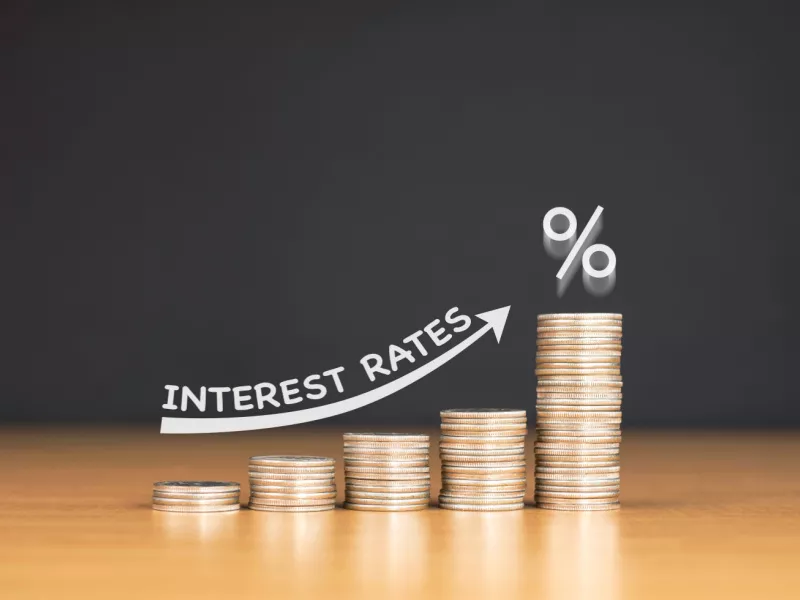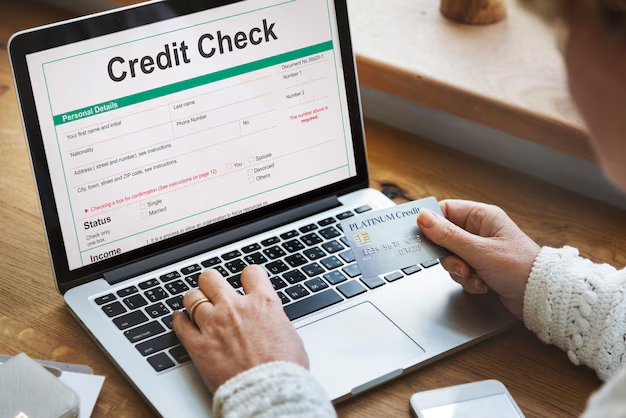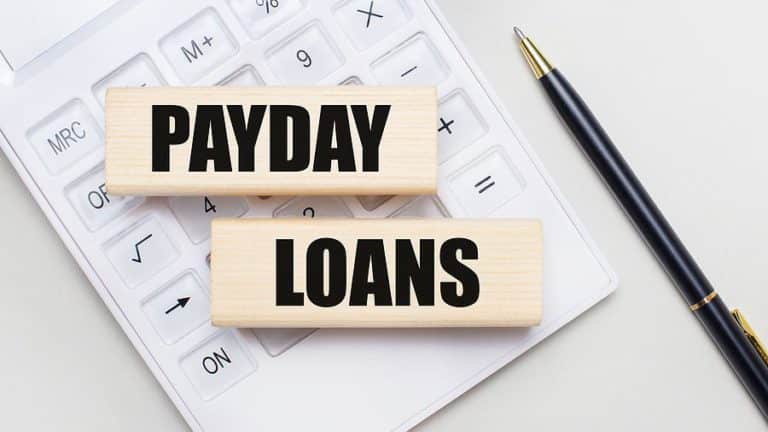When unexpected expenses arise, the immediate need for cash can sometimes feel overwhelming. For individuals who lack savings or other financial options, payday loans often present themselves as a tempting solution. These short-term loans promise quick cash to cover urgent needs, typically due by the borrower’s next payday. However, payday loans come with their own set of risks that can quickly escalate into a financial burden.
This article explores payday loans, examining whether they truly serve as a quick fix or if they end up becoming a significant financial burden. We will take a close look at the mechanics of payday loans, the pros and cons, the risks involved, and alternative options to help you make an informed decision about your financial future.
Key Takeaways:
- Payday loans offer quick cash but come with extremely high-interest rates and short repayment periods.
- They can lead to a cycle of debt if the loan is not repaid on time, causing financial strain.
- Alternatives, such as personal loans, credit card advances, and borrowing from family or friends, are often more affordable options.
- Always consider the full cost of borrowing and explore all available options before taking out a payday loan.
What Are Payday Loans?
A payday loan is a short-term, high-interest loan designed to cover an individual’s financial gap between paychecks. They are typically small loans—ranging from $100 to $1,000—that must be repaid in full by the borrower’s next payday, usually within two weeks or a month.
Payday loans are characterized by their quick approval process and minimal requirements. For instance, payday lenders often do not perform traditional credit checks, which makes them appealing to individuals with poor credit or no credit history. The application process is generally quick, and funds are often disbursed within hours.
However, the fast and easy nature of payday loans often comes with very high costs, including steep interest rates and fees, which can cause the borrower’s financial situation to spiral if not managed carefully.
How Do Payday Loans Work?
The process of obtaining a payday loan is fairly straightforward:
- Application: The borrower applies for the loan either online or at a physical payday lender’s location. To qualify, the borrower typically needs to provide proof of income, a bank account, and identification.
- Loan Approval: The payday lender assesses the borrower’s ability to repay the loan based on their income and may approve the loan quickly. Many payday lenders do not check the borrower’s credit score, which means that individuals with poor credit or no credit may still be eligible.
- Receiving the Funds: Once the loan is approved, the funds are usually deposited into the borrower’s bank account on the same day or within one business day.
- Repayment: The borrower is required to repay the loan on the due date, which is typically their next payday. Some payday lenders may offer a rollover option, allowing borrowers to extend the loan for a fee.
- High Costs: Payday loans come with high fees and interest rates, which can make them very expensive. These loans are often advertised with small principal amounts, but the interest fees can amount to hundreds of dollars, leading to a total repayment sum that far exceeds the original loan.
Example:
If a person borrows $300 from a payday lender with a 15% fee, they would owe $345 by the due date, which is a high fee for a short-term loan. If the loan is rolled over, the interest can multiply quickly, making it even more difficult to pay off.
Pros of Payday Loans
Despite the risks and high costs, payday loans do offer some potential advantages that may appeal to certain individuals facing a financial emergency.
Quick Access to Cash
For those who need money urgently, payday loans offer one of the fastest ways to access funds. The approval process is typically fast, and the money can be in your bank account within a matter of hours or by the next business day.
Minimal Requirements
Unlike traditional loans, payday loans often do not require a credit check. This means that individuals with poor or no credit can still qualify. Lenders typically only require proof of income, a valid ID, and an active bank account to qualify.
No Collateral Required
Payday loans are unsecured loans, meaning you don’t need to provide collateral, such as a car or home, to qualify. This can be appealing to individuals who don’t have assets to secure a loan.
Flexibility in Use
Payday loans can be used for a variety of purposes, including emergency medical bills, car repairs, utility bills, or even to cover other outstanding debts. Borrowers have the flexibility to use the money as they see fit, without any restrictions from the lender.
Short-Term Solution
For borrowers who are confident they can repay the loan on time, payday loans may provide a short-term solution to a temporary financial issue. The loans can help bridge the gap until the next paycheck arrives.
Cons of Payday Loans
While payday loans may seem appealing at first glance, the costs and risks associated with them can be severe and long-lasting. Here are the key downsides to consider before taking out a payday loan.
Extremely High Interest Rates and Fees
One of the most significant drawbacks of payday loans is their exorbitant interest rates and fees. The annual percentage rates (APRs) for payday loans can exceed 400%, making them incredibly expensive when compared to other types of credit. This can lead to a heavy debt burden, especially if the loan is not repaid on time.
Short Repayment Terms
Payday loans are typically due on the borrower’s next payday, which is usually two weeks to one month after the loan is issued. For many borrowers, this short repayment period may not be enough time to gather the funds needed to repay the loan in full, especially when factoring in the high fees. This can lead to a cycle of borrowing and debt accumulation.
Risk of Debt Cycle
The risk of falling into a debt cycle is one of the most concerning aspects of payday loans. Borrowers who are unable to repay the loan on time often resort to rolling over the loan or taking out another payday loan to pay off the original debt. This leads to accumulating fees and interest, making it harder to escape the cycle of debt.
Impact on Credit Score
While payday lenders generally do not report directly to credit bureaus, failing to repay a payday loan can still harm your credit score. If the loan goes unpaid and is sent to collections, it will be reported to credit agencies, which can negatively impact your credit score and future borrowing ability.
Potential for Predatory Practices
Some payday lenders engage in predatory practices, targeting vulnerable individuals who may not fully understand the terms of the loan. For instance, lenders may encourage borrowers to roll over their loans or fail to disclose all of the fees upfront, leading to an escalating debt burden.
Lack of Consumer Protections
Payday loans are often less regulated than traditional loans. While some states have passed laws to protect consumers from payday loan abuses, many borrowers remain vulnerable to predatory practices. Borrowers may not fully understand the total cost of borrowing until it’s too late.
Alternatives to Payday Loans
While payday loans can offer immediate cash in a pinch, there are other alternatives to consider that may provide a more sustainable solution without the high costs and risks.
Personal Loans
Personal loans from banks, credit unions, or online lenders tend to have lower interest rates and longer repayment terms compared to payday loans. These loans may require a credit check, but they can be a much cheaper option for borrowers with good or average credit.
Credit Card Advances
If you have a credit card with available credit, taking out a cash advance might be an option. Although credit card cash advances typically come with high fees and interest rates, they are usually lower than payday loan rates. However, cash advances should still be used cautiously and only when absolutely necessary.
Borrowing from Family or Friends

If you’re facing a financial emergency, borrowing money from family or friends may be a better option. Many people find it easier to negotiate repayment terms without the pressure and fees that come with payday loans. However, borrowing from loved ones can strain relationships if not repaid on time.
Nonprofit Credit Counseling Services
Nonprofit organizations, such as credit counseling agencies, can help you manage your debt, consolidate loans, and create a payment plan. They may also be able to negotiate with creditors on your behalf to reduce fees or interest rates.
Paycheck Advance from Employer
Some employers offer paycheck advances or short-term loans to employees who are in need of emergency funds. These advances are typically repaid through payroll deductions, making them an affordable alternative to payday loans.
Community Assistance Programs
Many local communities and nonprofit organizations provide assistance programs for individuals facing financial hardship. These programs may offer help with utilities, rent, or emergency medical bills.
5 Things You Should Know Before Taking Out a Payday Loan
When faced with an unexpected financial emergency, payday loans might seem like a quick solution. These short-term loans provide fast access to cash with minimal requirements. However, payday loans come with significant risks that can lead to long-term financial problems if not managed properly. Before you decide to take out a payday loan, it’s crucial to understand how they work and the potential consequences they may have on your financial well-being.
Here are five essential things you should know before taking out a payday loan:
They Come with Extremely High Interest Rates

One of the most significant drawbacks of payday loans is their exceptionally high interest rates. Payday loan lenders often charge APRs (Annual Percentage Rates) that can exceed 400%, making them one of the most expensive forms of borrowing available.
For example, if you take out a payday loan for $300 with a typical fee of 15% per $100 borrowed, you would owe $345 by the time your loan is due. While the loan amount may seem small, the fees and interest can quickly add up, making it a costly form of borrowing.
If you’re unable to repay the loan on time and you roll it over, the interest continues to accumulate, making the loan even more expensive. This can lead to a financial burden that is difficult to escape from.
Short Repayment Terms Can Lead to Financial Strain
Payday loans are usually due on your next payday, which is typically within two weeks to one month. While this may seem convenient for covering short-term expenses, it can create a significant strain on your finances, especially if you’re unable to repay the loan in full by the due date.
If your paycheck isn’t enough to cover both your loan repayment and other expenses, you might need to take out another payday loan just to cover the original debt. This cycle of borrowing and repaying can quickly escalate, leading to a situation where you are unable to break free from debt.
Consequences of Short Repayment Terms:
- Increased debt from high fees and interest.
- The risk of needing to roll over the loan, which leads to further borrowing.
- Stress and anxiety from financial strain as you struggle to meet your loan obligations.
There’s a High Risk of Getting Trapped in a Debt Cycle
One of the most significant dangers of payday loans is the risk of falling into a debt cycle. Since payday loans are short-term and come with high interest rates, many borrowers find it difficult to repay the loan in full on the due date. When this happens, borrowers often take out additional payday loans to cover the repayment, creating a vicious cycle of debt.
This cycle can snowball quickly, leading to larger and larger debts that are difficult to pay off. If you’re unable to repay your payday loan, the lender may offer to roll over the loan for an additional fee. However, this just pushes the repayment deadline further down the road, and you’ll be responsible for even more fees and interest.
This ongoing debt cycle can harm your credit score, making it even harder to qualify for traditional loans or credit in the future.
The Lender Might Not Check Your Credit, But It Can Still Affect Your Credit Score

Many payday lenders do not perform traditional credit checks when approving loans, which makes payday loans an attractive option for people with poor or no credit. However, even if the lender does not check your credit score, failing to repay the loan on time can still negatively affect your credit.
If you don’t repay the loan or roll it over, the lender may send your account to collections. Once the debt is in collections, it can be reported to credit bureaus, which can lower your credit score and make it harder to obtain credit in the future.
Moreover, if you continue to roll over payday loans or accumulate additional debt, your creditworthiness could be significantly impacted. This is why it’s important to be cautious and consider how repaying the loan on time could affect your overall financial health.
There Are Often Alternatives to Payday Loans
While payday loans may seem like a quick and easy solution, there are often more affordable alternatives that you should consider. Many of these options come with lower interest rates, more manageable repayment terms, and better long-term financial outcomes.
Alternative Options Include:
- Personal Loans: If you have a decent credit score, personal loans from banks, credit unions, or online lenders may offer a more affordable option. Personal loans often have lower interest rates and longer repayment terms, which makes them easier to manage.
- Credit Card Cash Advances: Some credit cards allow you to take out a cash advance. While these often come with fees and high-interest rates, they may still be more affordable than payday loans.
- Borrowing from Family or Friends: If you have friends or family who are willing and able to help, borrowing from them could be a more flexible and lower-cost option.
- Employer Pay Advance: Some employers offer paycheck advances or short-term loans to employees, which can be a better alternative to payday loans if you need cash urgently.
- Nonprofit Credit Counseling: Nonprofit organizations offer financial counseling services that can help you manage debt, reduce interest rates, or even consolidate loans.
Also Read: Payday Loan Scams: How To Protect Yourself
Conclusion
Payday loans may seem like a quick and easy solution for urgent financial needs, but they come with significant risks that can lead to long-term financial struggles. With their high-interest rates, short repayment terms, and the potential for debt cycles, payday loans can quickly become a financial burden.
Before taking out a payday loan, it’s essential to carefully consider the cost of borrowing and explore alternative options that may offer lower fees and more manageable repayment terms. If you do decide to proceed with a payday loan, ensure that you have a solid plan in place to repay it on time and avoid the pitfalls that many borrowers fall into.
FAQs
What happens if I can’t pay back my payday loan?
If you cannot repay your payday loan on time, the lender may charge additional fees, roll over the loan, or send it to collections. This can lead to additional interest charges, making the debt more difficult to repay. Your credit score could also be negatively impacted if the debt is sent to collections.
Can payday loans hurt my credit score?
Typically, payday lenders do not report to credit bureaus. However, if you fail to repay your payday loan, the lender may send the debt to collections, which will be reported to the credit bureaus and hurt your credit score.
How much interest do payday loans charge?
The interest rates on payday loans vary but can reach up to 400% APR or higher, depending on the lender and state laws. This makes payday loans an extremely expensive form of borrowing.
Can I roll over my payday loan if I can’t pay it back?
Many payday lenders offer the option to roll over the loan, which means you can extend the repayment period for a fee. However, this often leads to higher costs and can quickly trap you in a cycle of debt.
Are payday loans legal in all states?
Payday loans are legal in many states, but they are heavily regulated. Some states have banned payday loans altogether, while others have set strict limits on the fees and interest rates payday lenders can charge.
Can I get a payday loan with bad credit?
Yes, payday loans are often accessible to individuals with bad or no credit. Payday lenders typically do not perform credit checks, focusing instead on income and employment history.
Are there any hidden fees with payday loans?
Yes, payday loans often come with hidden fees that are not always disclosed upfront. These can include origination fees, rollover fees, and late payment fees, which can quickly accumulate and make the loan far more expensive than expected.

